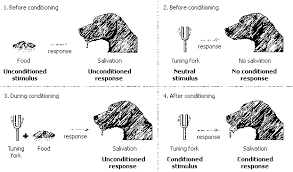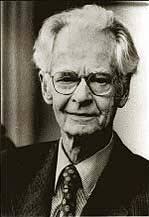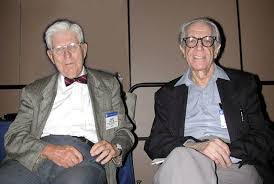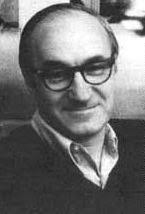Paradigms
Psychodynamic
Sigmund Freud

1. Pathology of elderly people is due to conflict between structures of mind - Id, Ego and Super Ego.
2. Study the pathology in terms of energy processing from Unconscious to conscious through Pre-conscious.
Psychosexual stages
Oral, Anal, Phallic,Genital and Latency
3. Study it in terms of Ego-defense mechanisms – Regression, Repression, projection, rationalization, displacement, reaction formation etc.
NEO-FREUDIANS
Alfred Adler

Study abnormal behavior in terms of one’s failure in striving for perfection,
Organ Inferiority, Psychological inferiority.
Defenses
Compensation;
Superiority Complex
Erikson


Abnormality is due to one’s failure in handling crisis of earlier stage.
1. Stage One Oral-Sensory: from birth to one, trust vs. mistrust, feeding;
2. Stage Two Muscular-Anal: 1-3 years, autonomy vs.doubt, toilet training;
3. Stage Three Locomotor: 3-6 years, initiative vs.inadequacy, independence;
4. Stage Four Latency: 6-12 years, industry vs.inferiority, school;
5. Stage Five Adolescence: 12-18 years, identity vs.confusion, peer relationships;
6. Stage Six Young Adulthood: 18-40 years, intimacy vs.isolation, love relationships;
7. Stage Seven Middle Adulthood: 40-65 years, generativity vs.stagnation, parenting;
Stage Eight Maturity: 65 years until death, integrity vs.despair, acceptance of
Classical Conditioning

Abnormality is due to faulty conditioning. It can be created experimentally

Operant Conditioning (B.F.Skinner)

Abnormality is shaped by positive and negative reinforcement.
1.Positive reinforcement : Strengthening of a tendency to respond by virtue of the presentation of an event
2.Negative reinforcement : Strengthening of a tendency to respond by virtue of the removal of an event
Cognitive Psychology

Aaron Beck and Allbert Ellis
Aaron Beck
Dysfunctional behavior is dysfunctional thinking, and that thinking processes are shaped by underlying *beliefs*. Situations are interpreted according to basic beliefs and acted on accordingly. "If beliefs do not change," he said, "there is no improvement. If beliefs change, symptoms change. Beliefs function as little operational units".
Principles
1. Arbitrary Inference: Conclusions drawn without the absence of sufficient evidence.
nSelective Abstraction: Conclusion drawn on the basis of but one of many elements in a situation.
2. Overgeneralization: Overall sweeping conclusion drawn on the basis of a single, perhaps trivial, event.
3. Magnification and Minimization: Exaggerations or feeling of self worthless
Allbert Ellis
"I would like x, but I hate y... versus, I would *like* x, and if y happens, Sh--! But I'll live with it!". He described his active technique of confronting irrational beliefs by explaining that "Whenever we get people to change their Musts, Shoulds, and Have-to's... they're cooked!" (ie., irrational beliefs will yield to better functioning after being argued out of existence).
Social Learning

Abnormality is due to faulty modelling and self regulation.
Assumptions:
1.Reciprocal Determination: Environment causes behavior, true; but behavior causes environment as well.
Regarding self-observation -- know thyself! Make sure you have an accurate picture of your behavior.
2. Regarding standards -- make sure your standards aren’t set too high. Don’t set yourself up for failure! Standards that are too low, on the other hand, are meaningless.
3. Regarding self-response -- use self-rewards, not self-punishments. Celebrate your victories, don’t dwell on your failures.
Integral Psychology

Abnormality is due to arrested and bewildered inner evolution in consciousness. It is the lack of harmonisation of physical, vital, mental and psychic energies
* Theories of Personality
* Personality Theories with Biography
*Lectures of Freud on Psychoanalysis
* Psychoanalysis Links
* Personality theories of Alfred Adler
* Personality theories of Erik Erikson
* Classical Conditioning
* Operant Conditioning
* Integral Psychology
The above lecture was given at the
Calcutta Metropolitan Institute of Gerontology
-1 Sopan Kutir : 53B, Dr.S.C.Banerjee Road : Calcutta - 700 010 Phone - (033) 350-1437, E-mail cmig@rediffmail.com INDIA
Activities



1 Comments:
hello doc. i was lookin for information if thr any test suit to geriatric pt-?
m doin research on psychosomatic illness among geriatric pt-
nw stil stuck wth idea...please help me
Post a Comment
<< Home